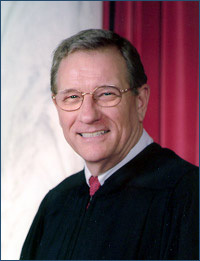CHARLESTON – A brief conversation between an employee of a coal company and a juror who was later dismissed is not enough to set aside a jury verdict in favor of the company, the state Supreme Court has ruled.
On Oct. 24, the court overruled a 2012 decision by Wyoming County Circuit Court Judge Warren McGraw, who was formerly a state Supreme Court justice. McGraw had granted the plaintiff’s motion to set aside a verdict in favor of Bluestone Coal.
Testimony showed that Bruno Cline, an employee of Bluestone, engaged Juror No. 6 in a conversation during a break in the trial on April 24, 2012. A plaintiffs attorney broke up the conversation, and the juror was dismissed.
The trial concerned Timothy Keneda’s deliberate intent claim following his alleged injury while on the job.
“(W)e find that the conversation between Mr. Cline and Juror No. 6 raised a presumption of prejudice,” the court wrote.
“Further, we find that the potential prejudice was remedied when the trial court granted the plaintiff’s request to remove Juror No. 6 and replace him with an alternate juror before jury deliberations began.
“The speculative prejudice the trial court relied upon – that Juror No. 6 had the opportunity to compromise the other jurors by telling them about his conversation with Mr. Cline – does not meet the standard this court set forth in State v. Johnson to set aside a jury’s verdict.”
Keneda said a five-foot-high wall fell on him while he was constructing a mine portal canopy in 2008 at Frontier Coal Company’s Double Camp No. 1 mine in Wyoming County.
During the break on the final day of trial, Cline testified that he first said to Juror No. 6, “It’s too hot to be in the courthouse, ain’t it?”
To which the juror responded, “Yes, I hope to go back to work tomorrow,” Cline testified.
Cline asked the juror where he worked, and the juror replied Walmart, Cline said. The juror also noted that he has his apprentice card but has been unable to find a job in the mines, Cline said.
Cline responded that the coal industry is having trouble right now, he says, before a plaintiffs attorney broke the conversation up.
The juror also testified as to the content of the exchange. He said Cline told him it won’t be long before he could find a job.
The juror said he did not discuss the conversation with any other jurors.
McGraw’s order said Cline was the mine foreman at the time Keneda was injured and that he sat at the defense table during the trial. The jury, therefore, knew he was a person of influence and importance to the defendants, McGraw said.
McGraw’s order also says the juror told his fellow jurors that he made a mistake and a mistrial would be blamed on him.
“(R)egardless of which version of the conversation in question is true, the court is left with the appearance of a jury tainted by prejudice,” McGraw wrote.
“At a minimum, the jury was aware that some sort of contact occurred to Juror No. 6 and that the juror was being questioned and removed.”
From the West Virginia Record: Reach John O’Brien at jobrienwv@gmail.com.
Chat between defendant, later-dismissed juror not enough to overturn verdict

ORGANIZATIONS IN THIS STORY

